The Music and Rhythm of Guitar Hero: How a Game Made Everyone a Rock Star
- Oct 07, 2024
- 858
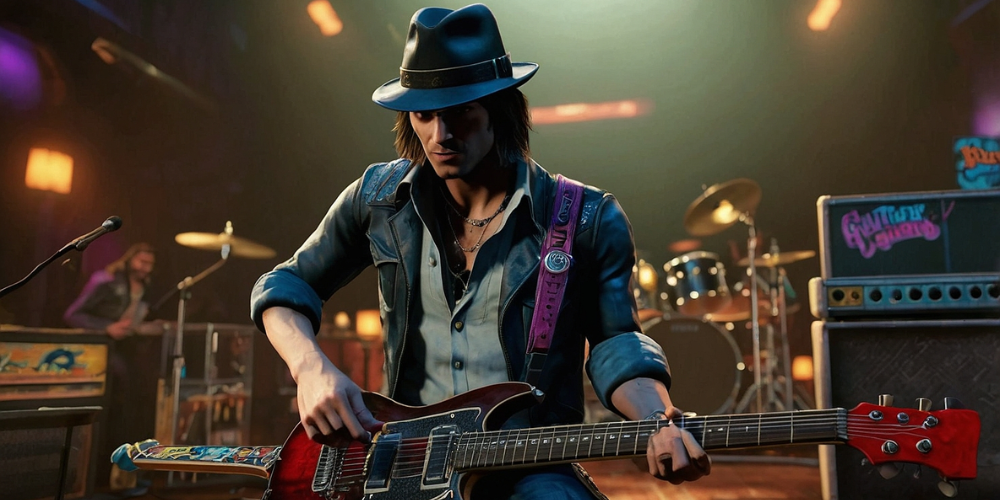
Guitar Hero wasn’t just a game—it was a cultural phenomenon that brought music and rhythm-based gaming into the mainstream. When I first picked up the plastic guitar controller and started strumming along to some of rock’s greatest hits, I realized that Guitar Hero had found a way to capture the joy of playing music in a way that was both accessible and incredibly fun. The game’s blend of rhythm, timing, and iconic songs made it an instant hit, and its influence on the music game genre is still felt today. For me, Guitar Hero wasn’t just about hitting the right notes—it was about feeling like a rock star.
The Rhythm-Based Gameplay
At its core, Guitar Hero is a rhythm game, but its unique use of the guitar controller set it apart from other games. The gameplay revolves around hitting colored notes in time with the music, using a combination of strumming and pressing the correct fret buttons on the guitar. The game’s straightforward yet challenging mechanics made it easy to start but hard to master, resulting in a rewarding learning curve. For me, the rhythm-based gameplay of Guitar Hero captured the feeling of playing along to my favorite songs in a way that was both intuitive and exhilarating.
The Iconic Setlist
One of the primary reasons for *Guitar Hero*'s success was its setlist, which included a diverse array of rock and metal songs from some of the most prominent bands globally. From classics like “Smoke on the Water” by Deep Purple to modern hits like “Through the Fire and Flames” by DragonForce, the game’s song selection was designed to appeal to both casual players and hardcore music fans. Each song presented its own challenges, with more difficult tracks requiring precise timing and dexterity. For me, the thrill of mastering a difficult song was one of the most rewarding aspects of the game.
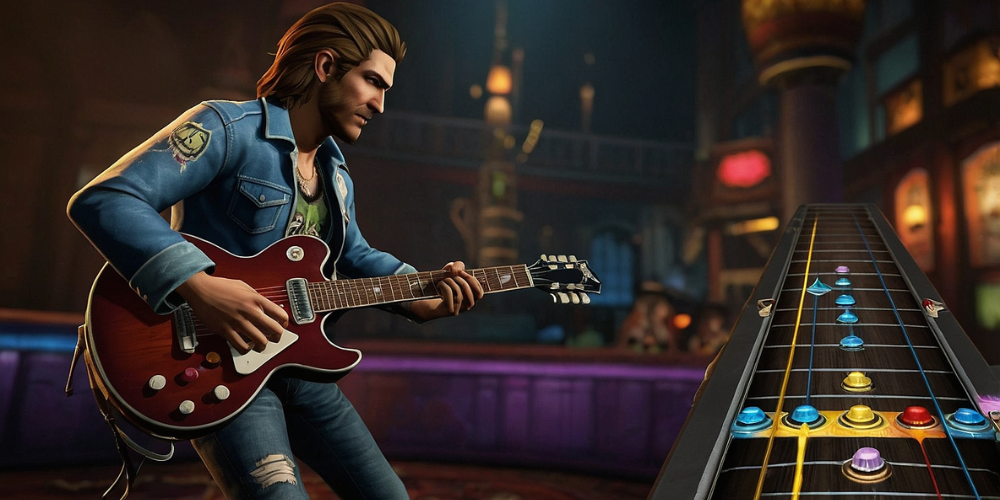
The Plastic Guitar Controller
The guitar-shaped controller was a major part of what made Guitar Hero so immersive and fun. Unlike traditional rhythm games that used a standard controller, Guitar Hero’s plastic guitar made me feel like I was actually playing an instrument. The controller’s design, with its five colored fret buttons and strum bar, was easy to use but allowed for a surprising level of complexity. The tactile feedback of strumming and pressing the frets added to the game’s sense of realism, making each successful note feel satisfying. For me, the guitar controller was one of the defining features of Guitar Hero, and it helped make the game a cultural phenomenon.
The Challenge of Expert Mode
Guitar Hero’s difficulty levels ranged from easy to expert, with each level offering progressively harder challenges. Expert mode, in particular, was known for its intense difficulty, requiring fast reflexes, precise timing, and near-perfect execution to succeed. Songs like “Free Bird” and “Jordan” became infamous for their difficulty, pushing players to the limits of their abilities. For me, the challenge of expert mode was both frustrating and exhilarating, as I spent hours practicing to hit every note perfectly. The sense of accomplishment I felt after mastering a difficult song on expert was one of the game’s greatest rewards.
The Competitive and Social Aspects
Guitar Hero wasn’t just a solo experience—it was also a game that brought people together. Whether it was playing co-op with a friend or competing in head-to-head multiplayer battles, the game had a strong social component. For me, some of the best moments were when I played with friends, either working together to nail a difficult song or competing to see who could get the highest score. The game’s competitive aspect, combined with its party-friendly nature, made it a hit at gatherings and social events.
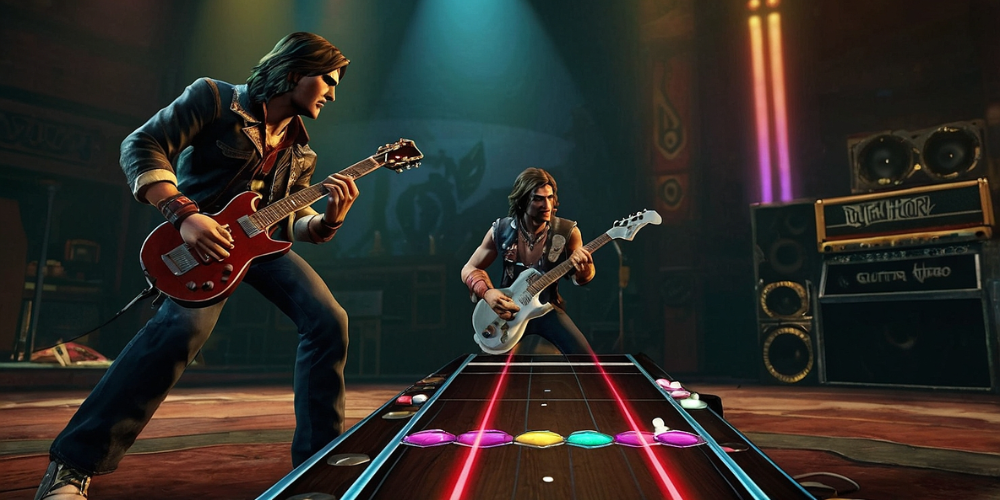
The Influence on Music Games
Guitar Hero’s success paved the way for a wave of music and rhythm games, from *Rock Band* to *DJ Hero*. The game’s innovative use of the guitar controller and its focus on playing along to real music inspired developers to explore new ways of incorporating music into gameplay. *Rock Band* took the concept even further by adding drums and vocals, creating a full-band experience that built on the foundation laid by Guitar Hero. For me, Guitar Hero’s influence on the genre is undeniable—it introduced millions of players to the joy of rhythm-based gaming and helped popularize music games in a way that few other titles have.
The Legacy of Guitar Hero
Guitar Hero may no longer be the cultural juggernaut it once was, but its legacy lives on. The game introduced a generation of players to the thrill of playing along to their favorite songs, and its impact on the music industry and gaming is still felt today. For me, Guitar Hero represents a time when music and gaming came together in a way that was both innovative and incredibly fun. Its impact on the music game genre remains a driving force for developers, and the memories of jamming with friends and conquering challenging songs will forever be cherished.
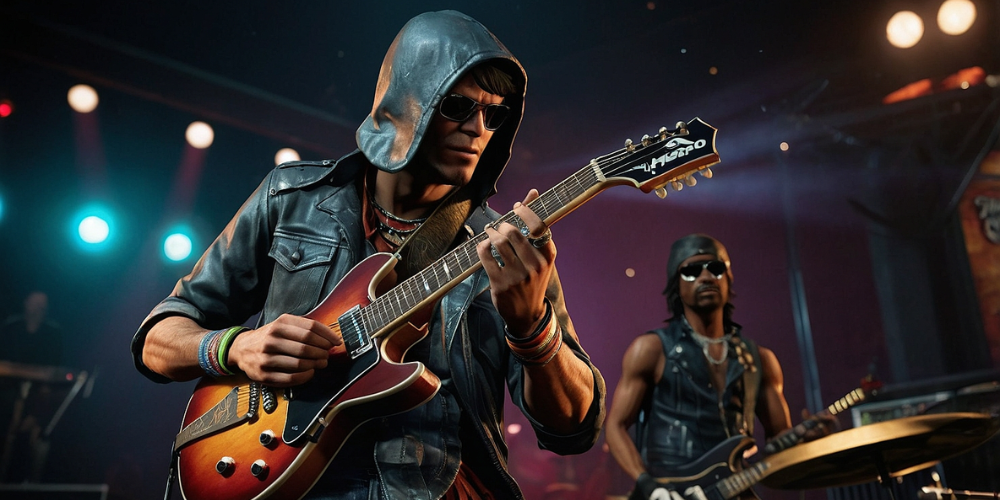
The Evolution of the Franchise
Over the years, Guitar Hero evolved with new features, modes, and instruments. Later installments in the series introduced full-band gameplay, where players could take on drums, bass, and vocals in addition to guitar. The game also incorporated new game modes, such as career mode and competitive tournaments, to keep the gameplay fresh. While the franchise eventually saw a decline in popularity, its evolution helped shape the future of music games and left a lasting impact on the genre. For me, the evolution of Guitar Hero showcased the potential for music games to grow and innovate over time.
The Cultural Impact of Guitar Hero
Guitar Hero had a significant cultural impact, reaching beyond just the gaming community. The game introduced players to fresh bands and songs, many of which experienced a revival in popularity due to their inclusion. Guitar Hero even influenced music education, with some schools using the game to teach rhythm and timing. For me, Guitar Hero was more than just a game—it represented a cultural phenomenon that merged music and gaming in a way that captivated the imaginations of millions of players globally.
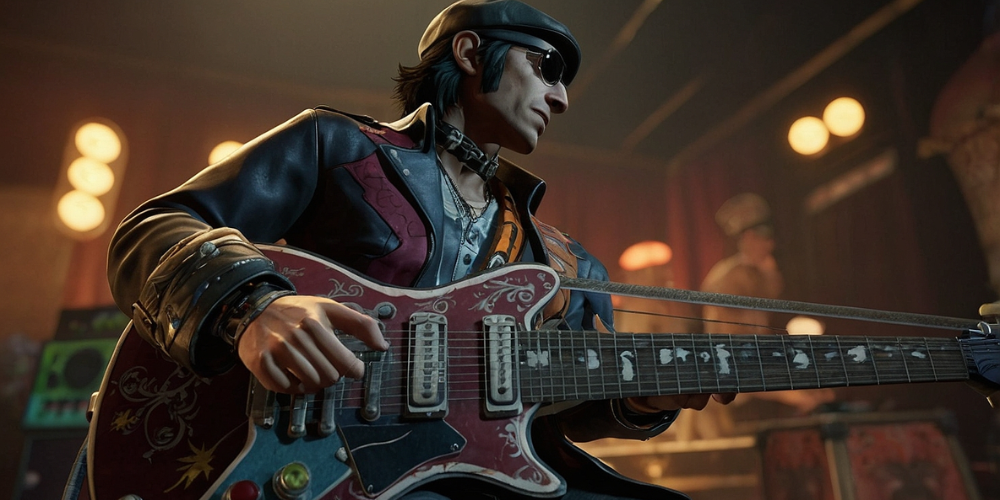
The End of an Era and Nostalgia
While the Guitar Hero franchise eventually came to an end, its influence remains strong. For many players, including myself, Guitar Hero represents a nostalgic period in gaming, when rhythm games were at their peak and music was at the heart of the experience. The game’s unique blend of rhythm, challenge, and iconic music created a lasting legacy that still resonates with fans today. Even though the series is no longer active, the memories of playing Guitar Hero and feeling like a rock star will never fade.